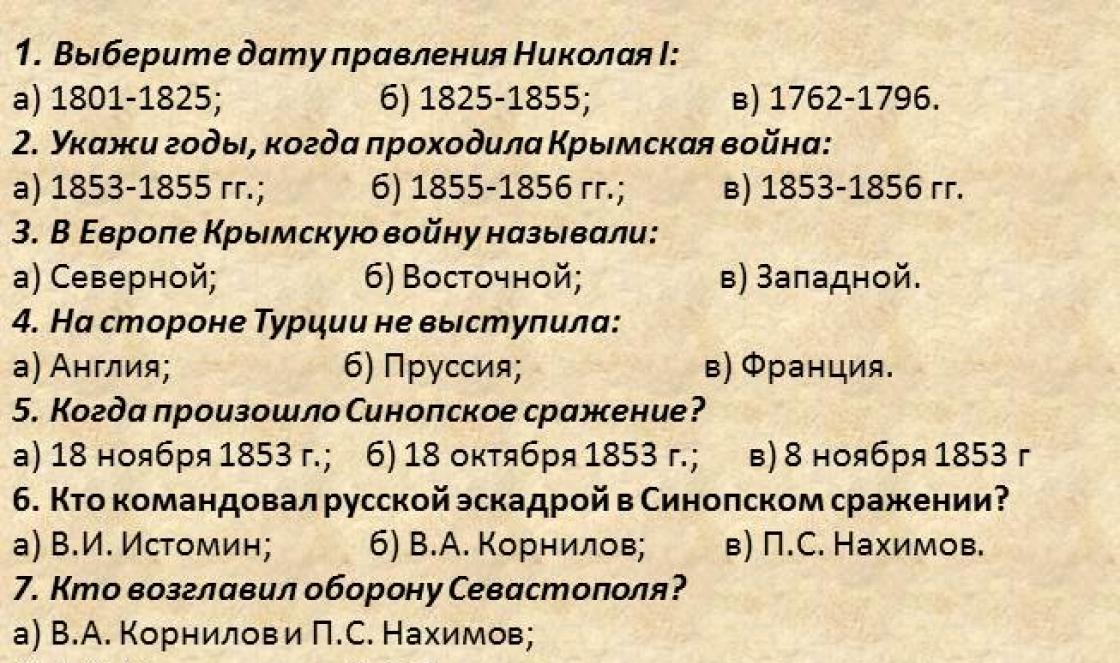Sergei Alexandrovich Yesenin
Golden leaves swirled
In the pinkish water of the pond,
Like a light flock of butterflies
Freezingly, he flies towards the star.
I'm in love this evening,
The yellowing valley is close to my heart.
The wind boy up to his shoulders
The hem of the birch tree was stripped.
Both in the soul and in the valley there is coolness,
Blue twilight like a flock of sheep,
Behind the gate of the silent garden
The bell will ring and die.
I've never been thrifty before
So did not listen to rational flesh,
It would be nice, like willow branches,
To capsize into the pink waters.
It would be nice, smiling at the haystack,
The muzzle of the month chews hay...
Where are you, where, my quiet joy,
Loving everything, wanting nothing?

The early works of Sergei Yesenin have amazing magical powers. The poet, who has not yet become disillusioned with life and has not lost the meaning of his own existence, never tires of admiring the beauty of the surrounding nature. Moreover, he communicates with her on an equal basis, endowing inanimate objects with the qualities and characters of ordinary people.
The poem “Golden Foliage Spun…”, which was written in the fall of 1918, also belongs to this romantic period of the poet’s work. This work exudes amazing peace and purity, as if in such a simple way Yesenin is trying to mentally escape from the bustle of Moscow, which causes melancholy and irritation in him.
It is in the poems of the wounded period that the poet reveals his true feelings and aspirations; he is irresistibly drawn to his homeland, where “the boy-wind covered the hem of the birch tree up to his shoulders.” Surely in Yesenin’s life there were many such quiet and joyful evenings, when he was in complete harmony with the world around him. And he managed to carry this feeling through the years, trying again and again to resurrect it in his memory. He compares the blue twilight of the coming night to a flock of sheep; the month reminds him of a young foal, which seems to be chewing hay, collected into a haystack by someone’s caring hands. At the same time, the poet notes that “never before have I listened so carefully to rational flesh.” With this phrase, he emphasizes that the surrounding nature is much wiser than man, and one should learn from it not only restraint, but also the quiet joy that it knows how to give so generously and freely.
In every line of this poem one can feel how much the author admires the ordinary rural landscape, which he identifies with his homeland. It is the pond, with water colored by the sunset in a soft pink color, and the yellowed leaves falling into it, that give Yesenin the feeling of peace and joy that a loving mother earth can give to her unlucky prodigal son who has returned home. However, creating these images of extraordinary beauty, the author only mentally returns to the village of Konstantinovo, where he spent his carefree childhood. His real life is already closely connected with the capital's elite, although the poet himself does not yet realize that in his poems he is forever saying goodbye to his homeland, which is close, understandable and infinitely dear to him. However, in the lines of this poem there are already clearly visible notes of mental confusion and anxiety when Yesenin asks: “Where are you, where, my quiet joy - loving everything, wanting nothing?” The poet understands that his past life is turning into a mirage every year, but he is unable to give up what he truly loves, although he understands that fate confronts him with the need for a choice, cruel but inevitable.
Golden leaves swirled...
Golden leaves swirled
In the pinkish water of the pond,
Like a light flock of butterflies
Freezingly, he flies towards the star.
I'm in love this evening,
The yellowing valley is close to my heart.
The wind boy up to his shoulders
The hem of the birch tree was stripped.
Both in the soul and in the valley there is coolness,
Blue twilight like a flock of sheep,
Behind the gate of the silent garden
The bell will ring and die.
I've never been thrifty before
So did not listen to rational flesh,
It would be nice, like willow branches,
To capsize into the pink waters.
It would be nice, smiling at the haystack,
The muzzle of the month chews hay...
Where are you, where is my quiet joy -
Loving everything, wanting nothing?
Read by A. Pokrovsky
Yesenin Sergei Alexandrovich (1895-1925)
Yesenin was born into a peasant family. From 1904 to 1912 he studied at the Konstantinovsky Zemstvo School and at the Spas-Klepikovsky School. During this time, he wrote more than 30 poems and compiled a handwritten collection “Sick Thoughts” (1912), which he tried to publish in Ryazan. The Russian village, the nature of central Russia, oral folk art, and most importantly, Russian classical literature had a strong influence on the formation of the young poet and guided his natural talent. Yesenin himself at different times named different sources that fed his work: songs, ditties, fairy tales, spiritual poems, “The Tale of Igor’s Campaign,” the poetry of Lermontov, Koltsov, Nikitin and Nadson. Later he was influenced by Blok, Klyuev, Bely, Gogol, Pushkin.
From Yesenin's letters from 1911 to 1913, the complex life of the poet emerges. All this was reflected in the poetic world of his lyrics from 1910 to 1913, when he wrote more than 60 poems and poems. Yesenin's most significant works, which brought him fame as one of the best poets, were created in the 1920s.
Like any great poet, Yesenin is not a thoughtless singer of his feelings and experiences, but a poet and philosopher. Like all poetry, his lyrics are philosophical. Philosophical lyrics are poems in which the poet talks about the eternal problems of human existence, conducts a poetic dialogue with man, nature, earth, and the Universe. An example of the complete interpenetration of nature and man is the poem “Green Hairstyle” (1918). One develops in two planes: the birch tree - the girl. The reader will never know who this poem is about - a birch tree or a girl. Because the person here is likened to a tree - the beauty of the Russian forest, and she is like a person. The birch tree in Russian poetry is a symbol of beauty, harmony, and youth; she is bright and chaste.
The poetry of nature and the mythology of the ancient Slavs permeate such poems of 1918 as “Silver Road...”, “Songs, songs, what are you shouting about?”, “I left my home...”, “Golden leaves swirled...” etc.
Yesenin's poetry of the last, most tragic years (1922 - 1925) is marked by a desire for a harmonious worldview. Most often in the lyrics one feels a deep understanding of oneself and the Universe (“I don’t regret, I don’t call, I don’t cry...”, “The golden grove dissuaded...”, “Now we are leaving little by little...”, etc.)
The poem of values in Yesenin’s poetry is one and indivisible; everything in it is interconnected, everything forms a single picture of the “beloved homeland” in all the variety of its shades. This is the highest ideal of the poet.
Having passed away at the age of 30, Yesenin left us a wonderful poetic legacy, and as long as the earth lives, Yesenin the poet is destined to live with us and “sing with all his being in the poet the sixth part of the earth with the short name “Rus”.
Those poems by Sergei Yesenin that relate to his early creative stage are filled with extraordinary energy and inner strength. This period is characterized by a special peaceful state of the lyrical hero, when the memories still contain mostly bright thoughts.
The real feelings that the author reveals in the poem “The Golden Foliage Spun” demonstrate a genuine love for nature and his native land. His extraordinary attentiveness to his favorite, familiar components of nature transforms the world, making it even more beautiful. In the very first quatrain, the feeling of a fairy tale arises due to the comparison of the leaves with a flock of butterflies. Their fall is silent and leisurely. They fall with a sinking feeling. The author feels their every movement, as if sharing everyday life with them. The mood of the lyrical hero is peaceful, close to rapture. Therefore, instead of dark, the water in the fall appears pink to him.
The second paragraph contains a straightforward confession: “I am in love tonight.” Despite the wind, which by this time had torn off a large amount of foliage, the author is pleased with the “yellowing valley.” He dissolves completely in nature, in the universe. He stands on the same level with nature, identifying himself with it: “there is coolness in both the soul and the valley.” Yesenin mentions a butterfly, a birch tree; among the verbs are “dizzy”, “flying”, “in love”, “ringing”, which characterize the stormy but easy activity of an age far from elderly.
With the help of simple personifications, the author's perception of autumn is easy to imagine. In the imagination, leaves peacefully fall onto the water in golden colors, birch trees await their fate. The merciless wind seemed to tear the leaves off them with one jerk. A bell in the distance echoes the poet.
The poem “Golden Foliage Spun” is the revelation of a young poet who, due to his youth, sees only the positive and beautiful in everything. The verse is imbued with adventurism, shrouded in a romantic mood. The young man has not yet had disappointments in his life, so his bright hopes are manifested in the lines of the work gently, with faith in the best, and optimistically. And in every line one sees a talented representation of the nature of his native land, where he spent his carefree childhood and where he strives to return again.
Option 2
A feature of Yesenin’s lyrics is the skillful use of various, rather rare words and the weaving of incredibly beautiful comparisons. In general, of course, such a statement sounds a little banal, because poets need to have the ability to use different paths, and this is also the work of a poet. However, if you know Yesenin’s lyrics, it becomes clear what we are talking about.
The golden foliage began to spin - a typical example of such lyrics. An incredible lace of words describes the arrival of autumn, describes it sensitively and soulfully. When you read these lines, you understand how tenderly Sergei Alexandrovich knew how to feel nature and the world around him.
Let's look at some comparisons and metaphors that the poet used to describe the autumn evening. He compares the fallen leaves on the water surface to a flock of butterflies that fly to a star. Here the image of the sky, vast outer spaces and beautiful butterflies circling in their natural round dance opens before us.
An interesting image is the boy-wind, who strips the hem of a birch tree. This light erotic motif brings the reader closer to nature and allows a closer look at simple natural phenomena. Yesenin talks about his own falling in love in the evening and additionally emphasizes the feeling of falling in love through the relationship of the birch girl and the wind boy.
The poet is in unity with the rest of the world, the line between external and internal turns out to be transparent, coolness spreads everywhere. A blue twilight “grazes” outside. The ringing of the bell adds an interesting touch and enlivens this quiet picture a little.
Yesenin speaks of the world as rational flesh, he feels life and vitality in all existence, he himself wants to, as it were, dissolve in the world, to become everything. For example, a willow tree and also dip its branches into the water. At the same time, he emphasizes his own care, because by uniting with the whole world, he understands the value of this beauty and becomes sensitive.
Analysis of the poem Golden foliage swirled according to plan
You might be interested
- Analysis of the poem The Inexpressible Sorrow of Mandelstam
Very often, when analyzing Mandelstam's poems, writers do not take into account the fact that the poet suffered from angina and asthma. Possible sudden death kept him in constant fear
- Analysis of the poem Free Falcon by Feta
Poem by A.A. Feta "Free Falcon" was written in 1884. This is one of his later creations. He does not deviate from his main theme and still writes about his feelings, expressing them through the beauty of nature.
- Analysis of Tyutchev's poem Fountain
The poet created this poem in 1836. Fyodor Tyutchev, after studying at the university in Moscow. Afterwards he received, one might say, the profession of a diplomat and was sent to Munich
- Analysis of the poem Son of a Bitch by Yesenin
Yesenin’s work is often deeply biographical, just as his literary colleague Hemingway would say a little later - you need to write honestly, you need to write about what you know
- Analysis of the poem I know, proud one, you love Fet’s autocracy
This work paints the image of a fatal beauty. The poet expresses his feelings when he encountered her charms.
Golden leaves swirled
In the pinkish water of the pond,
Like a light flock of butterflies
Freezingly, he flies towards the star.
The yellowing valley is close to my heart.
The wind boy up to his shoulders
The hem of the birch tree was stripped.
Both in the soul and in the valley there is coolness,
Blue twilight like a flock of sheep,
Behind the gate of the silent garden
The bell will ring and die.
I've never been thrifty before
So did not listen to rational flesh,
It would be nice, like willow branches,
To capsize into the pink waters.
It would be nice, smiling at the haystack,
The muzzle of the month chews hay...
Where are you, where, my quiet joy,
Loving everything, wanting nothing?
Comparative analysis of Yesenin’s poems “The golden foliage began to spin...” (1918) and “Blue May. Glowing warmth...”
Russia was not only the strongest, but perhaps the only strong love of Sergei Yesenin. Outside of Russia there was nothing for him: no poetry, no life, no love, no glory. Everything is in her, nothing is without her. And therefore, the main theme of the poet’s lyrical works was love for the homeland. Sincere love for his native land, which is expressed in unique experiences and moods, gave Yesenin’s poems a unique sound. There is not a single poem about Russia in which he does not glorify its nature.
In this regard, in my opinion, two of the poet’s poems, named after the first lines, are interesting: “Golden foliage swirled...” (1918) and “Blue May. Glowing warmth..." (1925) These poems are imbued with sadness, which is felt not only in the mental state of the lyrical hero, but also in nature, despite the fact that the poems depict different seasons (autumn, spring):
There is coolness both in the soul and in the valley.
The loneliness and homelessness of the lyrical “I” are especially noticeable in stanzas where a person is alone among an autumn or spring landscape. It even seems that part of the lines of one poem smoothly flow into the lines of another, repeating each other:
I'm in love this evening,
The yellowing valley is close to my heart.
...I'm with myself at my leisure...
This evening my whole life is sweet to me,
What a sweet memory of a friend.
Yesenin's landscape is not a dead, deserted picture. Using Gorky’s words, we can say that a person is always “interspersed” in him. This man is a poet himself, in love with his native land. Yesenin had a unique gift of deep poetic self-disclosure. The general theme of fading, the feeling of the last days - this is what characterizes these poems. “But I don’t curse what has passed,” Yesenin wrote, expressing the same thought as A.S. Pushkin: “What has passed will be nice.”
It would be nice, smiling at the haystack,
The muzzle of the month chews hay...
Where are you, where is my quiet joy -
Loving everything, wanting nothing?
Only me in this blossom, in this expanse,
Under the sign of Merry May,
I can't wish for anything
The poet accepts everything as it is:
I accept - come and appear,
All appear, in which there is pain and joy...
Peace to you, noisy life.
Peace be with you, blue coolness.
It is also interesting that the image of the garden also appears throughout these verses:
Behind the gate of the silent garden
The bell will ring and die.
The garden is burning like a foamy fire.
An important role in both works, as in all others, is played by color, which is intended not only to create the color scheme of the poem, but also to convey the feelings and moods of the lyrical hero. The poet’s favorite colors, as we see from these works, are blue and cyan. They enhance the feeling of the immensity of the expanses of Russia (“blue twilight”, “blue May”, “blue coolness”).
But, at the same time, blue color for Yesenin is the color of peace and silence, which is why it appears when depicting the evening. The semantic content of this color is entirely transferred by the poet to the internal characteristics of a person. This always means peace of mind, peace, inner peace. Using various means of expressiveness (epithets: “golden foliage”, “in pinkish water”, “eccentric moon”, “sticky smell”, “sticky smell”, “lace patterns”; comparisons: “like a pleasant memory of a friend”, “laughs” so that everyone trembles”, “the blue twilight is like a flock of sheep”, “like willow branches, to capsize into the pink waters”; personifications: “a bird cherry tree sleeps in a white cape”, “golden foliage whirled”), Yesenin expresses his feelings more fully and deeply , experiences and mood.
Thus, once again Yesenin shows the beauty of his native country, regardless of the time of year, and we understand that the soul of a person living in Russia and marvelous landscapes are inseparable from each other.





